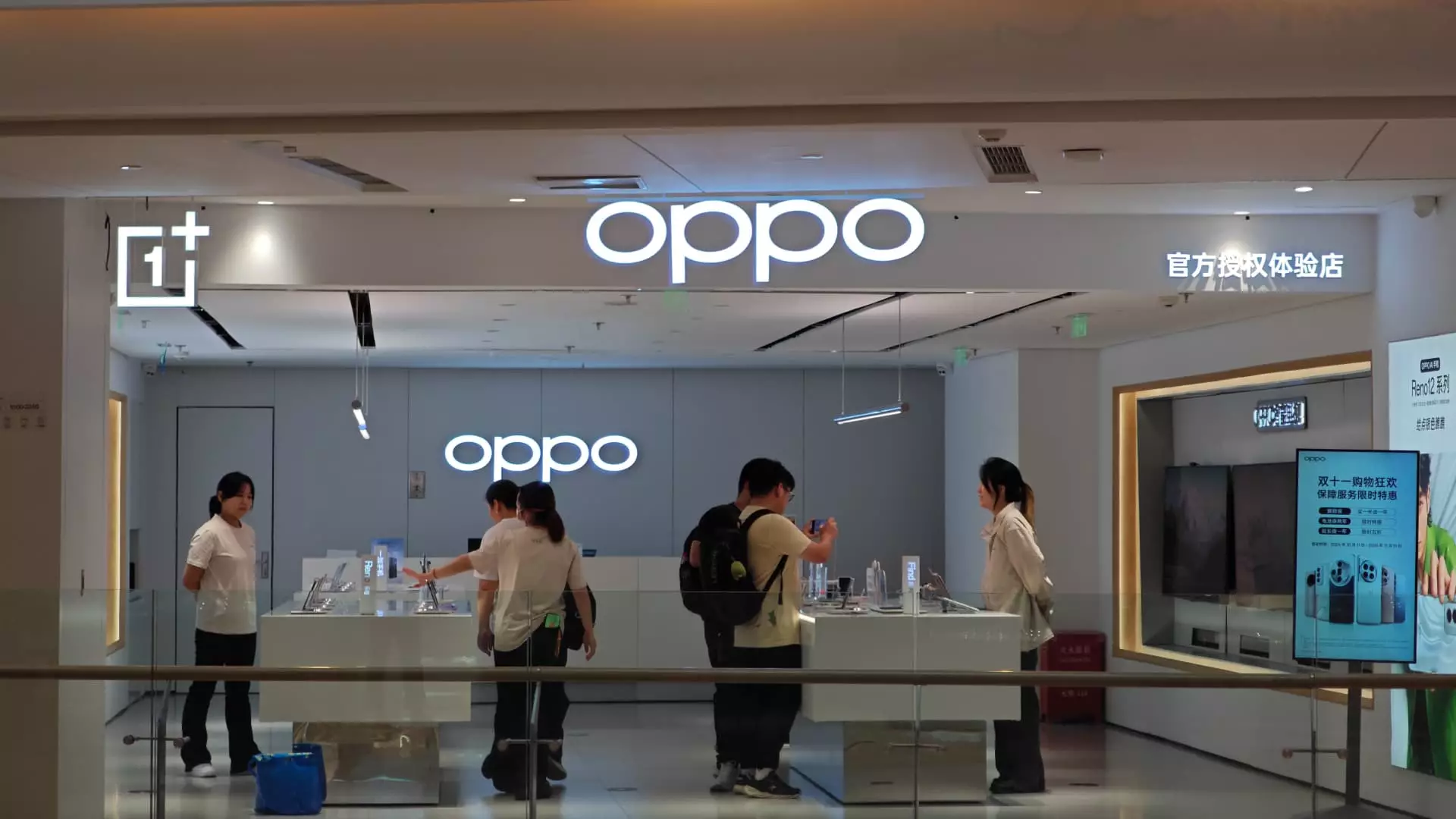Chinese smartphone manufacturer Oppo is embarking on a bold and strategic journey to enhance its products through artificial intelligence (AI). With an eye on global competition and new technological possibilities, the company has established weekly dialogues with senior executives at industry giants Google and Microsoft. This collaboration is particularly timely and crucial as Oppo prepares to launch its flagship smartphone, marking a significant entry into international markets.
The urgency behind these discussions stems from the burgeoning interest in generative AI technologies. Generative AI, which can generate human-like text and perform complex tasks, promises to dramatically change how consumers interact with technology. As companies like Apple and Honeywell scramble to integrate these advancements into their products, Oppo is positioning itself at the forefront of this inevitable technological shift.
During a recent press briefing, Billy Zhang, President of Oppo’s overseas markets, elaborated on the nature of these collaborations. He indicated that representatives from Google are keen to understand the specific needs and challenges that Oppo faces with its products. This proactive engagement speaks volumes about the importance of consumer input in shaping technological advancements.
Zhang emphasized that armed with a deep understanding of consumer preferences, Oppo aims to harness AI to enhance user experiences. He stated, “We know consumers’ needs, and we will use AI to satisfy them.” This commitment underscores a critical point: companies that prioritize consumer-centric innovation are more likely to thrive in a competitive landscape.
Oppo’s global ambitions are noteworthy. The company currently derives roughly 60% of its revenue from international markets, particularly in Southeast Asia and Europe. Despite this success, its current focus does not extend to the U.S. market, where local giants dominate. Nonetheless, the company has experienced robust growth, recently ranking as the fourth-largest smartphone vendor globally, according to Canalys research.
The company’s strategic positioning is informed by the belief that while the U.S. excels in AI research and development, Chinese tech firms, including Oppo, are poised to outperform in applying AI to consumer products. This advantage is amplified despite ongoing geopolitical tensions and restrictions on high-end semiconductor exports to China, demonstrating how companies can navigate challenges while remaining innovative.
Oppo’s upcoming flagship smartphone is expected to feature AI-driven functionalities, such as intelligent writing and summarization tools developed in collaboration with Google’s Gemini and content generation capabilities from Microsoft—a partner that uses OpenAI technology like ChatGPT. While the full extent of AI capabilities in previous Oppo models remains undisclosed, the anticipation surrounding these upcoming features foreshadows a significant leap in user engagement.
In a remarkable move, Oppo aims to integrate generative AI into 50 million devices within the year, signifying its ambition to embed these technologies deeply into consumer hardware. Current offerings already include AI-enabled features that enhance image quality and user experience, like removing reflections from photos.
Parallel to its consumer-focused innovations, Oppo is also revolutionizing its manufacturing processes through AI. In a strategic hiring realignment, the company has begun replacing a portion of its workforce with automated machines to streamline operations and improve production efficiency. By reallocating human resources toward more complex tasks, Oppo can enhance its product quality while reducing overall production costs—a dual advantage that’s hard to overlook.
Danny Du, the company’s director of manufacturing management, highlighted the benefits of advancing digital technologies within factories. With manufacturing costs plummeting nearly 40% over three years and production times reduced from 16 days to just 6, Oppo is poised to adapt swiftly to market demands while minimizing the risks associated with unsold inventory.
Their digital management system is being deployed globally to bolster operational consistency across various manufacturing sites, including in Turkey, India, and Egypt. This strategic alignment of technology and manufacturing paves the way for responsive and responsible international expansion.
As the smartphone market witnesses a technological metamorphosis fueled by AI, Oppo’s decisive actions reflect a keen understanding of market dynamics and consumer expectations. By forging robust partnerships and embedding AI into both consumer products and manufacturing processes, Oppo is not just keeping up with the competition; it is setting the stage for a reinvigorated era of innovation that could enhance user experiences across the globe.
In this context, Oppo’s journey serves as a case study on how emerging markets can leverage technology and strategic partnerships to carve out significant niches in the highly competitive realm of global consumer technology. As the landscape evolves, the ability to adapt and innovate will be critical. The next few years will be crucial for Oppo as it seeks to solidify its place in the competitive smartphone arena, armed with the transformative potential of artificial intelligence.

Leave a Reply